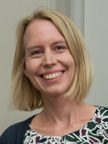October 20, 2017, Stefanie Jegelka, Massachusetts Institute of Technology
Friday, October 20, 2017, 3pm-4pm
8 St. Mary’s Street, PHO 211
Refreshments at 2:45pm

Stefanie Jegelka
Massachusetts Institute of Technology
Faster Computation and Exploitation of Uncertainty
Estimates of uncertainty are at the heart of many machine learning tasks, but their computation can be a bottleneck. For example, an important problem across science and engineering is the optimization of an unknown function by sequential evaluations (measurements). A popular approach is Bayesian Optimization, where a Gaussian Process prior is set on the unknown function, and the resulting uncertainties are used for the sequential decision process. Yet, Gaussian process-based methods do not generally scale well to estimation in high dimensions and with many query points.
In this talk, I will show recent work that improves this situation in two respects: first, a more efficient information-based criterion for sequential selection that not only leads to large empirical improvements, but for which we also show theoretical regret bounds. These are the first such bounds for a variant of the popular family of “entropy search” methods. Second, we develop randomized, adaptive and parallelizable approaches to scaling Gaussian processes to high dimensions and large numbers of query points. As opposed to “straightforward” low-rank approximations, these approaches preserve uncertainty estimates much better. Moreover, we show connections of the resulting criteria and algorithms to other popular methods in the literature.
If time permits, I will take a broader perspective and conclude with recent results on faster Wasserstein Barycenter computation with implications to parallel Bayesian inference more broadly.
Joint work with Zi Wang, Chengtao Li, Clement Gehring and Pushmeet Kohli.
Stefanie Jegelka is an X-Consortium Career Development Assistant Professor in the Department of EECS at MIT. She is a member of the Computer Science and AI Lab (CSAIL), the Center for Statistics and an affiliate of IDSS and ORC. Before joining MIT, she was a postdoctoral researcher at UC Berkeley, and obtained her PhD from ETH Zurich and the Max Planck Institute for Intelligent Systems. Stefanie has received an NSF CAREER Award, a DARPA Young Faculty Award, a Google research award, the German Pattern Recognition Award and a Best Paper Award at the International Conference for Machine Learning (ICML). Her research interests span the theory and practice of algorithmic machine learning.
Faculty Host: Brian Kulis
Student Host: Sean Sanchez